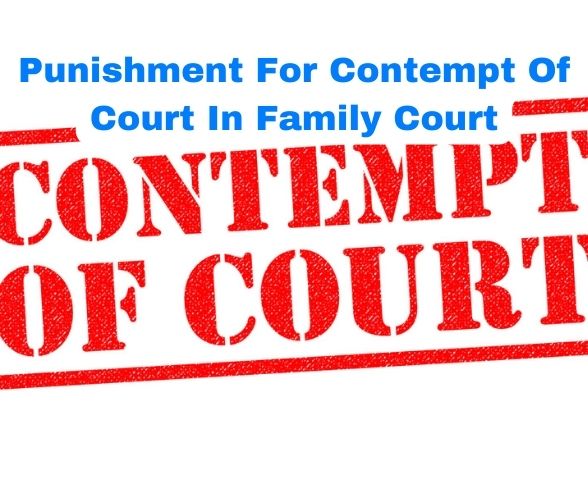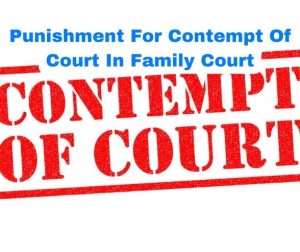
A divorce decree outlines all the terms that guide ex-spouses on how they are supposed to handle child support, child custody, property division, and more. The divorced parties have to obey the terms of the divorce that are included in the final decree or risk being held in contempt of court. There are several penalties that you may face if you do not abide by the conditions of the final decree.
Understanding Contempt
What Are The Consequences Of Contempt Of Court In Child Custody
 Contempt can be defined as violating a court order or disobeying a court order. In most cases, people get in trouble with the court for failing to pay child support or alimony, not sticking to the visitation agreement, or not dividing property as instructed in the final decree.
Contempt can be defined as violating a court order or disobeying a court order. In most cases, people get in trouble with the court for failing to pay child support or alimony, not sticking to the visitation agreement, or not dividing property as instructed in the final decree.
But you need to prove to a family court that the other party willfully or intentionally disobeyed a court order to prove that the person is in contempt. First, you need to show that the accused knew about the order, was able to obey the order but failed to obey, and does not have any valid reason why they failed to obey. As the accuser, the burden of proof lies on you, which means you must gather enough evidence to prove your case.
Intent In Contempt Of Court Cases
The word ‘intent’ is very important because sometimes people fail to abide by court orders because of circumstances beyond their control. For example, your ex-spouse could get a flat tire and fail to pick up the kids at the agreed-upon time, and so on. But if you can prove that your ex-spouse was lying about the flat tire, you have a stronger case.
Only file for contempt after you have sent your ex-spouse a warning letter that defines what action the ex-spouse needs to take to resolve the issue. You can offer the ex-spouse an extra day to visit your child if they missed a visitation day. This could work in your favor when you finally go to court because the court will assume that you are acting in good faith not out of malice.
Punishment For Contempt
What Happens If You Don’t Follow A Family Court Order
There are different levels of civil and criminal penalties for contempt. The less severe penalties include compensatory visitation, fines, and new custody arrangements. Jail time is reserved for significant infractions.
But courts rarely send parents that disobey family court orders to jail.
However, courts can give the accused a chance to resolve the matter that got them charged with contempt. For instance, the accused can pay the back child support they owed or make up for the visitation days they missed. The offending parent may get away without punishment if they show the court they are willing to change.
A court may award extra visitation time and even modify the custody agreement if the other parent consistently disobeys the visitation terms. Modifying the custody arrangement requires filing a motion to modify.
In some states, parents that disobey court orders have to pay compensation for any damages suffered by the other parent.